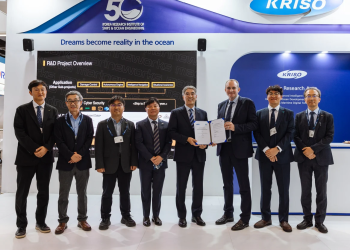The Vice President of Innovation, Engineering, and Technology, Marine at Rolls Royce, Mr Oskar Levander, in an article states that the fisrt automatic ships are almost here. In particular, Rolls-Royce anticipates that the first commercial vessel to navigate entirely by itself could be a harbor tug or a ferry designed to carry cars the short distance across the mouth of a river or a fjord and that it or similar ships will be in commercial operation within the next few years.
As for fully autonomous oceangoing cargo ships, they may be routinely plying the world’s seas in 10 or 15 years’ time. Mr Levander added that remotely controlled ships, piloted by people on shore, and autonomous ships, which can take actions for themselves, are the latest beneficiaries of increasing digital connectivity and intelligence. These developments in electronic sensors, telecommunications, and computing have sparked interest in a range of autonomous vehicles including cars, planes, helicopters, trains, and now ships. Companies and academic researchers around the world are working hard to turn these ideas into reality.
Furthermore, Rolls-Royce has mounted a joint industry project in Finland called Advanced Autonomous Waterborne Applications (AAWA). The participants hope to create the technology for a remotely controlled or fully autonomous ship that will operate in coastal waters before the end of the decade. And we’re not alone.
Another advantage of remotely controlled and autonomous ships is that they can be designed with a larger cargo capacity and lower wind resistance. That’s because, with no crew to accommodate, certain features of today’s ships can be eliminated—for example, the deck house, the crew quarters, and elements of the ventilation, heating, and sewage systems. This will make the ship lighter and sleeker, cutting fuel consumption, reducing operating and construction costs, and facilitating designs with more space for cargo.
Finally, intelligent ships will provide owners and operators with a way to respond to the growing shortage of people who have the requisite maritime skills. With more and more mechanical and electronic systems on board, ships are becoming increasingly complex, needing skilled technicians to keep them working. At the same time, seafaring as a career is growing less attractive, with fewer people from developed nations wanting to spend weeks or months at a time away from home and family. Remote and autonomous operations could facilitate the transfer of jobs requiring high levels of education and skills to ports of call or to operations centers on land, making such careers more interesting to young people entering the industry.
For further details you may read the full article here

































































